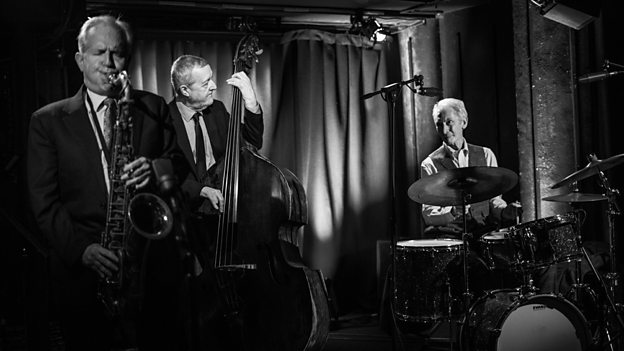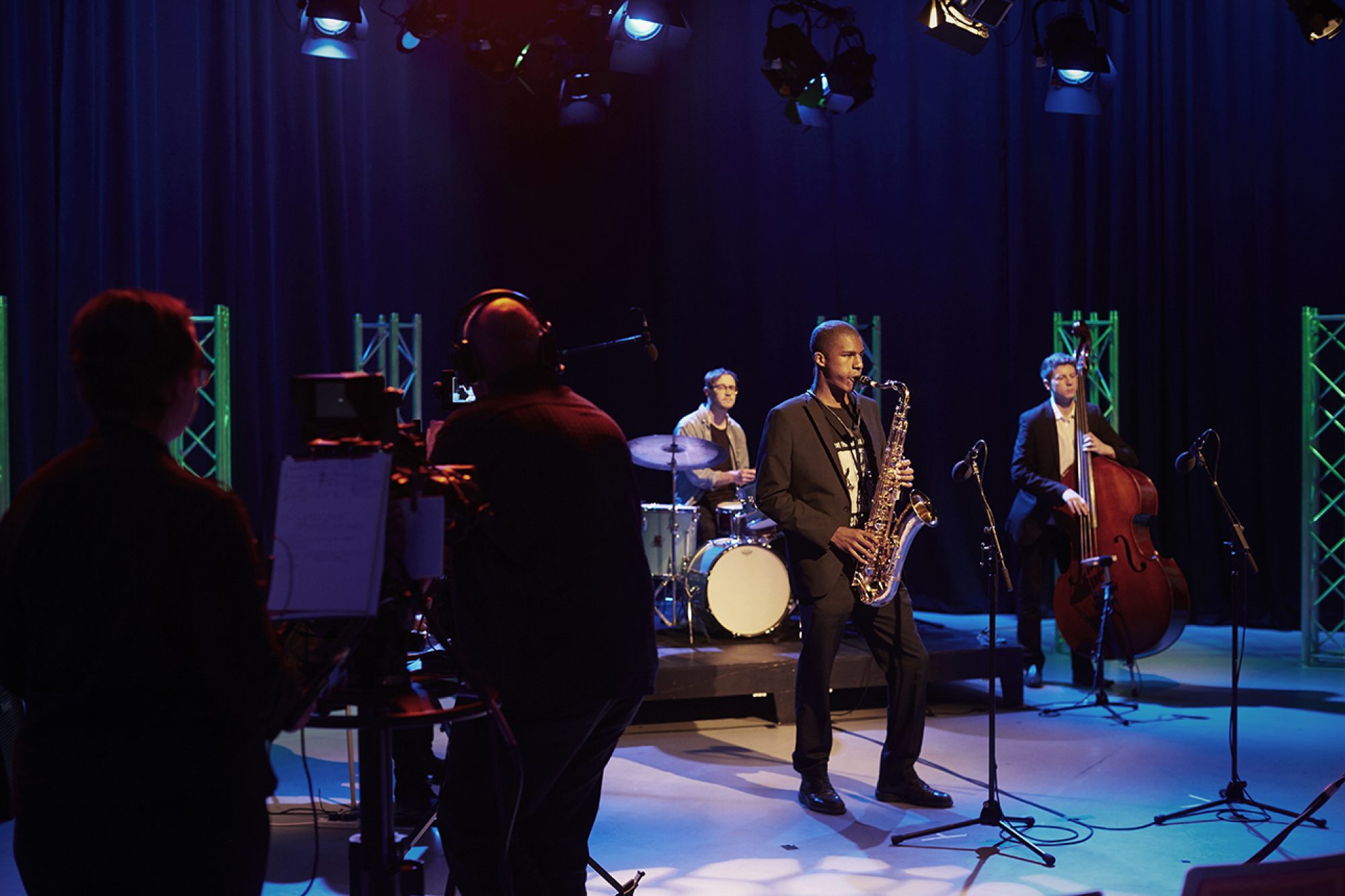This project is about the interaction between jazz music and television. It aims to reevaluate the place of television within the humanities and develop new methods of analyzing these texts. There are three strands to the research: archival, interview and production/performance. The archival research will determine the range of jazz performance in BBC music, documentary and variety programming. The interview research will record anecdotal evidence from BBC production crew, musicians and audience members. The production/performance research will generate a new jazz TV programme, using contemporary musicians and digital equipment to investigate collaborative creative labour in the environment of the television studio. Together, these three research strands will constitute the most comprehensive study of jazz on television in Britain.
Programmes
Produced by Terry Henebery, who had worked on radio jazz programmes from Aeolian Hall during the 1950s, Jazz 625 became known for its serious yet dynamic presentation of the music, combining striking images with superb sound balance. It was followed by other, equally interesting programmes – e.g. Jazz Goes to College (1966-1967), Jazz at the Maltings (1968-1969) and Jazz Scene at Ronnie Scott’s (1969-1970), all produced by Henebery – yet it is Jazz 625 that has lodged in the popular memory. Unlike the later programmes, much of Jazz 625 has survived in the archives due to the practice of 35mm telerecording.
This page will house a database detailing BBC jazz broadcasts during the period 1960-1969.
Remaking Jazz 625
While my interviews had brought me closer to direct experience, I wanted to go through the process of production myself. This ‘practice-as-research’ element would test the way I was conceiving of television, as a collaboration between complementary orders of expertise (musical, technical, institutional) in the service of artistic creation. Studio A at Birmingham City University became the venue for a remounting of Jazz 625, renamed Jazz 1080 by our director Mark Kershaw to reflect the digital technology we were using. Our aim was not to mimic Jazz 625 but rather to use archive documentation as a roadmap to shape our own vision. The TV studio became a laboratory, a space in which I could observe and record the micro-interactions between our core ex-BBC crew and the larger BCU student crew, between crew and musicians, between musicians and audience. We recorded as live, vision-mixed as live, in front of a live studio audience – and we did it all across two days, just as the BBC had in the 1960s.
In the week that we made Jazz 1080 at BCU, I was invited down to Broadcasting House. Adam Barker (BBC4) and Jez Nelson (Somethin’ Else) had hit upon the idea of reviving Jazz 625, for one night only. Just as Henebery had taken advantage of US musicians touring the UK, this production would deploy some of the stars playing Cheltenham Jazz Festival. After my university experiment in jazz television, it was tremendously exciting to be applying my research to a genuinely new episode of Jazz 625 on the BBC. As the programme’s research consultant, I worked with director Chris Walker on the VT documentary packages to be dropped into the live broadcast. Unlike previous repeats and clip-shows, this broadcast would acknowledge Jazz 625 not just as landmark music television but as a milestone in BBC history. A personal highlight over the course of production was the interview that we conducted with Terry Henebery, architect of the programmes I’ve spent years researching.

Publications
As well as delivering outputs to traditional academic publications (such as The Routledge Companion to Popular Music History and Heritage), the project has also developed work for television broadcast, blu-ray liner notes, online blogs and indie comic books.
‘For One Night Only: Jazz 625 on the BBC’, Arts and Humanities Research Council blog, 2 May 2019
‘Rediscovering Jazz 625’, Cheltenham Festivals blog, 29 April 2019
‘Researching Jazz 625’, BBC History blog, 30 April 2019
‘Five iconic moments on British jazz TV’, British Film Institute blog, 11 September 2017
‘Preview: BFI A Ton of Jazz’, London Jazz News blog, 8 September 2017
‘Making Jazz 1080: television production as process’, Critical Studies in Television
blog, 13 July 2018
Events
Events
Jazz on the Telly, October 2019, BCU Jazz 1080 screening and Q&A, BCU Parkside lecture theatre, 29 January 2019 Paper at Documenting Jazz, DIT Dublin, 19 January 2019 Remaking Jazz 625: how academics become terrified television producers, 23 October 2018. Victoria Rooms, University of Bristol. Keynote address, Music 625 conference, University of Leeds, 7-9 June …
